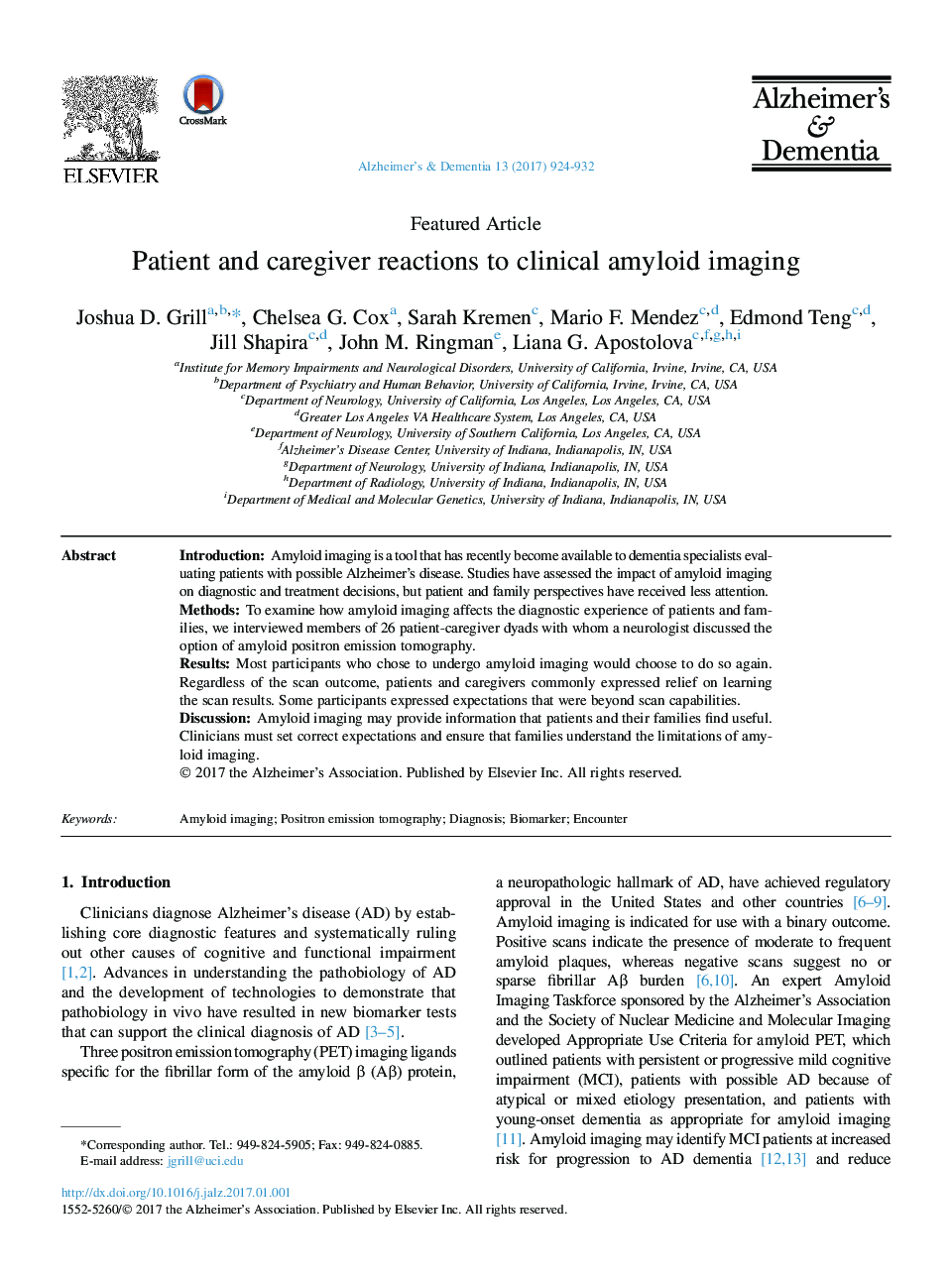| Article ID | Journal | Published Year | Pages | File Type |
|---|---|---|---|---|
| 5622431 | Alzheimer's & Dementia | 2017 | 9 Pages |
IntroductionAmyloid imaging is a tool that has recently become available to dementia specialists evaluating patients with possible Alzheimer's disease. Studies have assessed the impact of amyloid imaging on diagnostic and treatment decisions, but patient and family perspectives have received less attention.MethodsTo examine how amyloid imaging affects the diagnostic experience of patients and families, we interviewed members of 26 patient-caregiver dyads with whom a neurologist discussed the option of amyloid positron emission tomography.ResultsMost participants who chose to undergo amyloid imaging would choose to do so again. Regardless of the scan outcome, patients and caregivers commonly expressed relief on learning the scan results. Some participants expressed expectations that were beyond scan capabilities.DiscussionAmyloid imaging may provide information that patients and their families find useful. Clinicians must set correct expectations and ensure that families understand the limitations of amyloid imaging.
